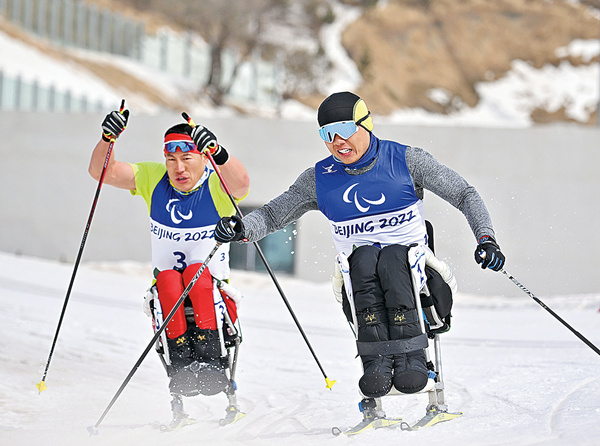Understanding the mechanics of success


Simply put, the program, offering support to around 200 Paralympians, aimed to improve man-machine fitness while strengthening the physical capabilities of the athletes with proper training.
China had a weak foundation in Winter Paralympic sports, with poor training conditions and insufficient technological support, according to Feng Meiyun, former deputy head of Beijing Municipal Bureau of Sports, who has been consulting for the program.
As well as building an overall training system for athletes with physical challenges and their coaches, and improving competition performance, the program also aimed to lay a foundation to attract more people with physical challenges to join the sports over the longer term, she says.
"We should popularize winter sports among people with physical challenges while providing proper training and comprehensive protection, which requires us to enhance research and development in this field," she says, adding that it's also important for building a clear system of cultivating professional athletes.
Ji has been looking into the fields of both competitive sports and assistive devices for people with physical challenges for over three decades. The smart upper arm prosthesis Tsinghua developed in the 1980s was able to cut finger nails and lace up shoes.
When Sun Changting won the gold medal in men's javelin at the 1992 Barcelona Paralympics, he was wearing a prosthesis developed by a research team which Ji was a part of.




































